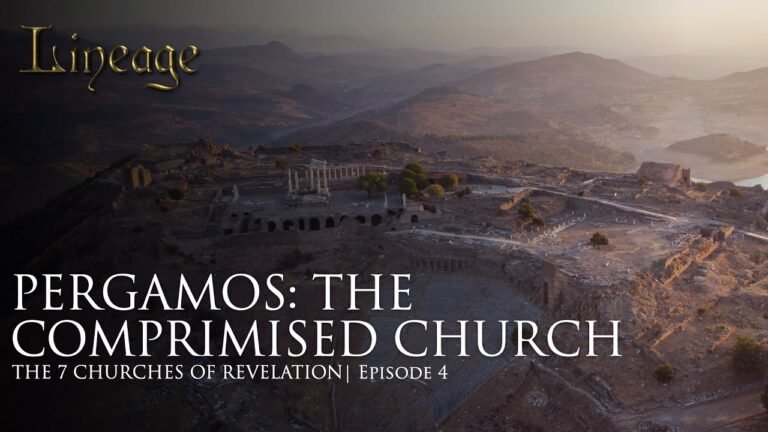Exploring the Christian Foundations of America
The question of whether America was founded on Christianity has sparked intense debate among historians, theologians, and the public alike. While many early settlers were driven by religious motivations and sought freedom from persecution, the Founding Fathers crafted a Constitution that emphasized secular governance and individual liberties. This complex interplay of faith and reason raises important questions about the role of religion in shaping the nation’s identity and values. As we explore the foundations of America, we delve into the influences that shaped its principles and the ongoing discussion about the intersection of religion and politics in modern society.
Was Christianity central to America’s founding principles?
While Christianity influenced some founding principles, America was established on Enlightenment ideals of liberty and democracy, allowing for religious freedom and diverse beliefs.
What is the foundational religion of the United States?
The foundation of the United States is deeply rooted in the Christian faith, as many of the early colonies were established as extensions of a Christian nation. These settlements were driven by a desire for religious freedom and the opportunity to practice their beliefs without persecution. Consequently, Christianity played a significant role in shaping the moral and ethical framework of the emerging nation.
As the colonies transitioned toward independence, the relationship between religion and governance evolved. The American Revolution marked a pivotal moment where the colonies not only sought political freedom from British rule but also embraced a broader interpretation of liberty that included religious independence. This shift allowed diverse religious practices to flourish, reflecting the varied beliefs of the new American populace.
In celebrating their newfound independence, both religious and political leaders emphasized the importance of freedom of conscience. This dual pursuit of liberty fostered an environment where multiple faiths could coexist, laying the groundwork for a pluralistic society. Today, the United States stands as a testament to the enduring legacy of its Christian roots while also embracing a multitude of religious expressions.
Is God referenced in the U.S. Constitution?
The U.S. Constitution is a secular document that does not include any mention of God, emphasizing the separation of church and state as a foundational principle of American governance. This absence highlights the framers’ intention to create a legal framework that protects individual freedoms, allowing citizens to practice their beliefs without governmental interference.
In contrast, many state constitutions incorporate references to God or the divine, reflecting the diverse religious heritage of the nation. Additionally, God is acknowledged in significant historical texts such as the Declaration of Independence and the Pledge of Allegiance, as well as on U.S. currency, illustrating the enduring influence of faith in American culture and identity.
Were all the Founding Fathers Christians?
The religious beliefs of the Founding Fathers varied significantly, with Christianity playing a prominent role for many of them. Out of the 56 signers of the Declaration of Independence, 29 possessed degrees that would be recognized as seminary qualifications today, highlighting a strong educational foundation in Christian thought. Furthermore, numerous Founding Fathers openly proclaimed their Christian faith, contributing to the spiritual and moral framework that influenced the formation of the nation. This diverse tapestry of beliefs reflects the complexity of the early American political landscape, where faith and reason often intertwined.
Unveiling the Spiritual Roots of a Nation
Every nation is shaped by its spiritual heritage, a tapestry woven from beliefs, traditions, and values that resonate through time. These spiritual roots not only provide a sense of identity but also guide communities in their moral and ethical choices. By exploring the rich diversity of faiths and philosophies that have influenced a nation, we uncover a deeper understanding of its culture and social fabric. This exploration reveals how spirituality has been a source of strength, resilience, and unity, fostering a shared sense of purpose among its people.
As we delve into the historical narratives and sacred practices that have defined a nation, we begin to see the profound impact of spirituality on its development. From ancient rituals to modern expressions of faith, these elements contribute to the collective consciousness and shape the aspirations of generations. Recognizing the intertwining of spirituality and national identity invites us to appreciate the nuances of cultural expression and the enduring power of belief in shaping a brighter future. In this way, the spiritual roots of a nation serve as both a foundation and a guiding light, illuminating the path toward harmony and understanding.
Faith and Freedom: The Cornerstones of American Identity
At the heart of the American identity lies an unwavering commitment to faith and freedom, two pillars that have shaped the nation’s history and culture. Faith, in its diverse expressions, has inspired countless individuals and communities to pursue justice, compassion, and hope. This spiritual foundation fosters resilience and unity, reminding citizens of the shared values that bind them together, regardless of their backgrounds. It is within this tapestry of beliefs that the essence of American character flourishes, driving progress and innovation across all spheres of life.
Equally vital is the concept of freedom, which empowers individuals to express their ideas, pursue their dreams, and participate in the democratic process. This liberty is not only a legal right but a moral imperative that honors the sacrifices made by those who fought for the nation’s ideals. The interplay of faith and freedom creates a dynamic environment where creativity and diversity thrive, enabling America to evolve while staying true to its core principles. Together, these cornerstones cultivate a society that celebrates individuality while fostering a collective spirit, ensuring that the American dream remains alive for generations to come.
From Pilgrims to Patriots: A Journey Through Belief and Liberty
The journey from Pilgrims to Patriots encapsulates a rich tapestry of faith, sacrifice, and the relentless pursuit of freedom. The Pilgrims, seeking religious sanctuary, embarked on a treacherous voyage to a new world, driven by their unwavering belief in the right to worship without persecution. Their struggles laid the foundation for a society where individual liberties began to take root, fostering a spirit of resilience and hope. This foundational quest for freedom resonated through generations, igniting a passion for independence that would ultimately reshape the destiny of a nation.
As the colonies grew, so did the desire for self-determination, culminating in the fervent cries for liberty that characterized the American Revolution. The ideals of the Pilgrims evolved into a broader vision of freedom, inspiring Patriots to challenge tyranny and advocate for a government that reflected the will of the people. This transformation from a quest for religious freedom to a fight for universal rights highlights the enduring legacy of belief in the face of oppression. Together, the stories of these early settlers and revolutionary thinkers remind us that the journey toward liberty is often paved with courage, conviction, and an unwavering commitment to a better future.
The debate over whether America was founded on Christianity continues to evoke strong opinions and interpretations. While the influence of Christian values and principles in shaping early American society is undeniable, the nation’s founding documents emphasize freedom of religion and the separation of church and state. This complex interplay between faith and governance reflects a commitment to pluralism, allowing for diverse beliefs to coexist. Ultimately, the true essence of America lies in its ability to embrace a multitude of perspectives, fostering a rich tapestry of cultural and religious diversity that remains vital to its identity today.







